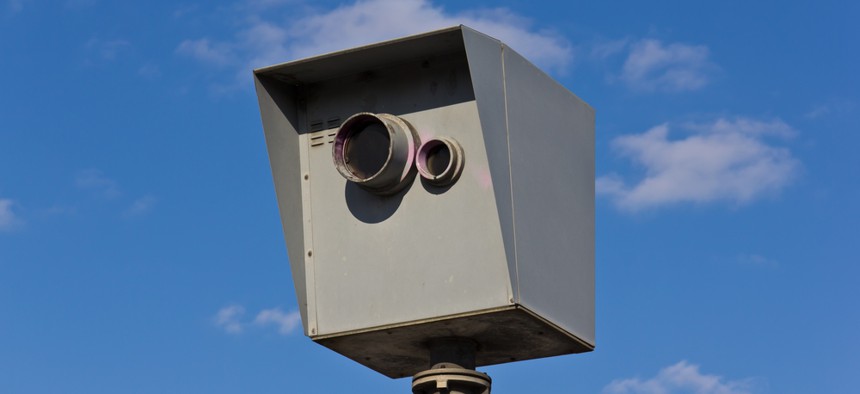Iowa’s Speed Camera Legal Debate; Louisiana’s Ugly Toxic List

topae / Shutterstock.com

Connecting state and local government leaders
Also in our State & Local roundup: Seattle and Tacoma port officials put aside rivalries and join forces.
Here is our State & Local news roundup for Tuesday, October 15, 2014 ...
NEW ORLEANS, Louisiana: With the recent protests by Louisiana state officials concerned about the dumping of incinerated hospital waste from the Texas hospital at the center of the Ebola situation—even though it would pose no public health threat—The Times Picayune “thought it would be interesting to look at what materials are dumped in Louisiana's landfills on a regular basis that actually do pose some threat to human and environmental health.” And the list isn’t pretty.
ROCHESTER, New York: The Democrat & Chronicle newspaper has asked a local judge to order Monroe County officials to release data “collected by police license-plate readers about the vehicles of seven newsroom employees and a pair of government-owned cars.” The county had previously denied a public records request but a lawyer for the newspaper said that the “response is particularly troubling here because there is no expectation of privacy in a license plate which — by law — must be openly displayed to the public.”
SIOUX CITY, Iowa: Are speed cameras constitutional? A lawsuit that accuses a Sioux City speed-camera ordinance of violating due process is headed to the Iowa Supreme Court on Wednesday, Nick Nytrek of the Sioux City Journal reports. A Sioux City lawyer filed the lawsuit, and said in a court filing that the city’s ordinance, “imposes liability on a vehicle owner arbitrarily without any rational relationship required to be found between the owner and the driver who exceeds the speed limit.”

Boylston Street in Boston
BOSTON, Massachusetts: Are there any leadership lessons from the Boston Marathon bombing response that could be applied the current response to Ebola in the United States? For WBUR-FM’s CommonHealth, Leonard Marcus, Ph.D, Barry Dorn, M.D., Richard Serino and Eric J. McNulty, M.A., outline “five key interelated lessons” including leveraging interjurisdictional trust and knowing when individual organizations involved in response know how to “stay in their lanes.”
SEATTLE, Washington: The port commissions for Seattle and Tacoma “have finally acted” on long-term discussions to form a strategic—though limited—alliance to help the Puget Sound ports better compete with other West Coast ports. In a guest opinion piece at Crosscut, Jordan Royer of the Pacific Merchant Shipping Association, says that it was smart for stakeholders in the Seattle and Tacoma ports to set “aside past rivalries to do what is best for the people they represent and the region as a whole.”
(Top image via topae / Shutterstock.com; second image fmua / Shutterstock.com)





